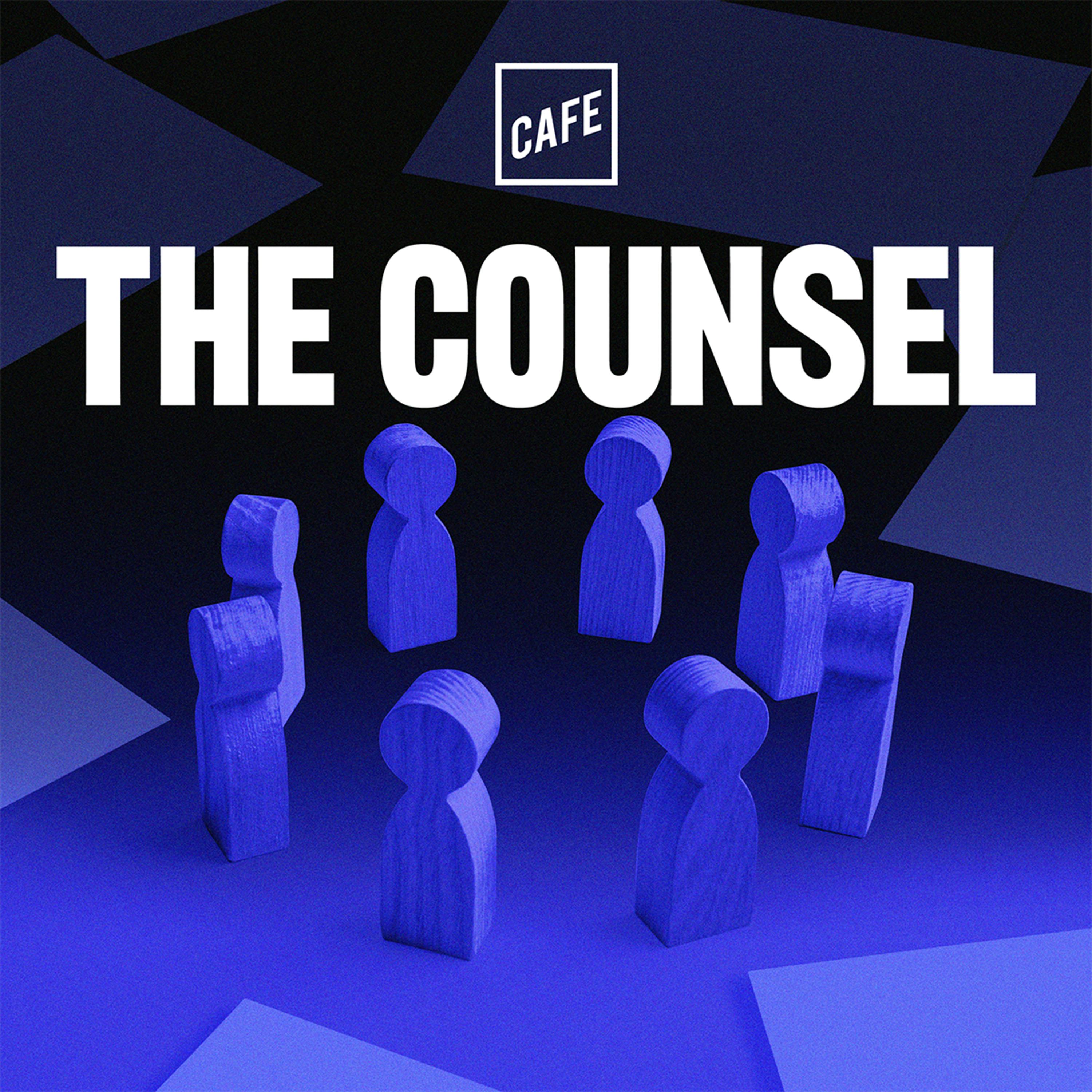
Note From Barb 4/30: Freezing the Free Press

The Counsel
Deep Dive
Shownotes Transcript
Toyota is the best resale value brand for 2025, according to kellybluebookskbb.com. And with a wide range of dependable vehicles for any lifestyle, you can get everything you need in a vehicle today while investing in tomorrow. So choose Toyota and choose value. Shop buyatoyota.com for great deals and more. Vehicles projected resale value is specific to the 2025 model year. For more information, visit kellybluebookskbb.com. Kelly Blue Book is a registered trademark of Kelly Blue Book Co. Inc.
Toyota, let's go places. Hey folks, Barb here. Here's a recording of my latest cafe note, Freezing the Free Press. As always, please write to us with your thoughts and questions at lettersatcafe.com. Dear listener, the framers of our constitution saw the free press as a safeguard of democracy. The Trump administration treats it like an enemy to be tamed.
Last week, Attorney General Pam Bondi rescinded a Department of Justice policy that had limited prosecutors in using compulsory legal process to obtain records and information from reporters. Bondi's remarks about the policy focused on government leakers, but her decision is likely to have a chilling effect on journalists as well.
In 2021, former Attorney General Merrick Garland implemented the policy, prohibiting the use of subpoenas, court orders, and search warrants to obtain testimony or records from members of the media engaged in the news gathering process. As stated in Garland's accompanying memo, the policy recognized that a free and independent press is vital to the functioning of our democracy.
According to Politico, which reviewed last week's memo sent to DOJ employees, Bondi wrote not of the important role of a free press in democracy, but of government leakers and their media allies, a seeming conspiracy of schemers working to, quote, undermine President Trump's policies, end quote.
Her move restores department policies from the first Trump administration, which obtained phone and email records from four New York Times reporters who had cited unnamed government sources. In response, Garland imposed his prohibition to permit journalists to, quote, "'apprise the American people of the workings of their government,' end quote."
Importantly, the 2021 policy imposed no such restrictions in the case of investigating government employees who may be the source of a leak. Public servants who agree to protect government secrets as a condition of employment, but significantly not reporters, remain subject to compulsory process for testimony or phone and email records.
In addition, Garland's DOJ continued to prosecute individuals who disclosed classified or national defense information to the detriment of national security, such as former intelligence analyst Daniel Hale and WikiLeaks founder Julian Assange. By renewing the use of compulsory process against journalists—
Bondi risks shutting down channels of communication between reporters and sources inside or outside of government on any manner of subjects. In addition to federal employees who may want to expose unlawful government acts, other whistleblowers will also be deterred from speaking to reporters.
corporate insiders, healthcare workers, or any other would-be source who wants to remain anonymous must think twice before talking to a reporter, lest they be unmasked when a prosecutor obtains the journalist's phone logs or text messages. Even a savvy source who uses an encrypted app like Signal might see their name revealed if a reporter is compelled by subpoena to testify before a grand jury.
Unlike the law in some states, federal law contains no reporter's privilege to protect journalists from disclosing their sources. A reporter who refuses to tell a grand jury the name of a source could be jailed for contempt, a strong inducement to give up the name. A source whose identity is disclosed risks becoming the target not just for retribution from the Trump administration, but for threats, harassment, and doxing from the public.
Some will calculate that sharing information about government or other misconduct with a reporter is not worth the risk of personal exposure. Standing alone, Bondi's decision might be unremarkable, but it comes at a time when the press is already under assault by President Donald Trump, who regularly refers to the media as the enemy of the people.
In February, the White House banished the Associated Press from its press pool for refusing to change its influential style book to reflect Trump's preferred name for the Gulf of Mexico as the Gulf of America. At the Pentagon, traditional media outlets such as the New York Times, NBC News, and National Public Radio were booted in favor of the right-leaning Breitbart News, One American News Network, and the New York Post.
The Trump administration is also advocating for budget cuts for the Corporation for Public Broadcasting, which funds PBS and National Public Radio, because of what OMB director Russell Vogt has called its focus on leftist news and cultural indoctrination. Our Supreme Court has long recognized the importance of a free and vigorous press.
In New York Times v. United States, the 1971 decision, better known as the Pentagon Papers case, the court found that the government had failed to meet the very high burden necessary to block the publication of a Defense Department report containing classified secrets about U.S. involvement in Vietnam.
In a concurring opinion in that case, Justice Hugo Black wrote, quote, in the First Amendment, the founding fathers gave the free press the protection it must have to fulfill its essential role in our democracy. The press was to serve the governed, not the governors. The press was protected so that it could bear the secrets of government and inform the people. Only a free and unrestrained press can effectively expose deception in government, end quote.
Perhaps that's exactly what Bondi seeks to avoid. Stay informed while you still can. Barb.